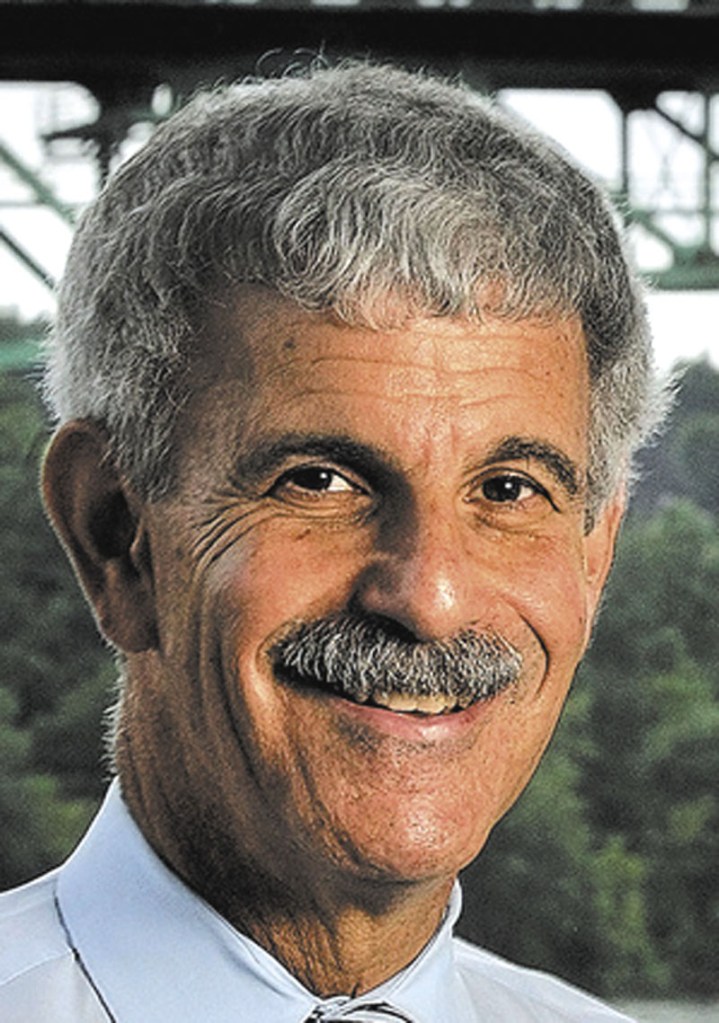AUGUSTA — A bill to be considered in the upcoming legislative session could make it easier for natural gas projects to secure financing.
But some groups, including those representing heating oil interests, are crying foul, saying the legislative proposal is unafir and amounts to the state underwriting a particular source of energy.
Sen. Roger Katz, R-Augusta, said he sponsored the bill with the proposed Kennebec Valley Gas Co. pipeline in mind. Plans call for the $85 million pipeline to pass through Katz’s district on its way from Richmond to Madison.
“In my view, this gas pipeline is the most important economic development project in the last 20 years in this area,” Katz said. “We all know that our high energy costs are making it really difficult to attract and retain good businesses.”
Katz said aiding construction of the pipeline is his highest priority for the upcoming session.
His bill, L.R. 2589, would increase the Finance Authority of Maine’s cap on insuring loans. The state agency, also known as FAME, helps businesses secure loans by guaranteeing to repay up to 90 percent of a loan if the business cannot.
FAME’s cap is $7 million, far less than the cost of the proposed pipeline.
Katz said the Energy, Utilities and Technology committee would need to work out what the new cap should be. The FAME board would not be required to guarantee the project.
Katz said that even if FAME does commit, he does not anticipate that state money will be necessary.
“There’s a very robust interest in hooking into the pipeline,” he said. “I think that the prospects of default are slim. But it’s such a significant project that it needs FAME-backing to make it happen.”
The Maine Energy Marketers Association sees the bill as an endorsement of a particular energy source and interference in the market, said Jamie Py, the association president. The group represents sellers of several types of energy products, including heating oil.
Kennebec Valley Gas Co. also has requested tax breaks — known as tax increment financing arrangements, or TIFs — from the dozen central Maine communities through which the pipeline would run. So far, several communities have approved the tax breaks or taken initial steps toward doing so, while just one community — Farmingdale — has rejected the deal.
Gas company officials announced this week that project plans no longer involve distribution lines running through Farmingdale, a change that some critics have called retaliation for the deal rejection.
Py said local officials are being asked to make decisions on the tax breaks without knowing what the state might do for the project in the upcoming legislative session.
“Why does the project need the state guarantees and the TIFs if it’s a viable project?” he said.
If FAME insured a large loan for the project, it wouldn’t necessarily mean that the state would contribute any money, but it would limit FAME’s ability to assist others, Py said.
“They don’t have unlimited capacity,” he said. “So there is a cost involved to the state and a limitation to what the state can do.”
Kennebec Valley Gas Co. partner Richard Silkman said a loan guarantee from FAME certainly could be helpful for his company’s project, or any other natural gas pipeline.
Loan guarantees have benefited other energy projects, including the Record Hill wind project in Oxford County, which received a $102 million guarantee from the U.S. Department of Energy.
“We told Sen. Katz that this kind of financing assistance may or may not be necessary for us, but it’s good to have it available just in case it becomes important to the project,” Silkman said.
FAME has established its own cap of $4.75 million, less than allowed by state law, after deciding that committing to larger amounts would be too risky.
“The board has determined that that would be inappropriate given our capacity to pay out on any losses,” said Elizabeth Bordowitz, chief executive officer of FAME. “We could absorb it once, but that means we’d have to lower the cap for the future.”
FAME has built a lending capacity of more than $100 million. If it overruns that amount, the state is obligated to pay its commitments.
The amounts FAME insures average about $117,000 per loan. For larger projects, there are more stringent criteria.
“We’d be looking for stronger credit, and we would also be looking for very strong public benefit,” Bordowitz said.
Earlier this year, for instance, FAME approved loan insurance at its maximum level for Woodland Pulp LLC to convert its Baileyville mill from oil to natural gas, a project that will help retain jobs by lowering energy costs.
Although FAME frequently helps businesses become more energy-efficient, it does not receive many requests to assist energy infrastructure projects such as the Kennebec Valley Gas pipeline.
The financing FAME could offer would be “miniscule” compared to the cost of those projects, Bordowitz said. Instead, companies typically use commitments from large customers to secure a bank loan.
Silkman said difficulties may arise if a bank does not consider those potential customers credit-worthy or if an initial commitment starts at a relatively small volume, even if there are plans to increase it later.
Susan McMillan — 621-5645
smcmillan@mainetoday.com
Send questions/comments to the editors.



Comments are no longer available on this story